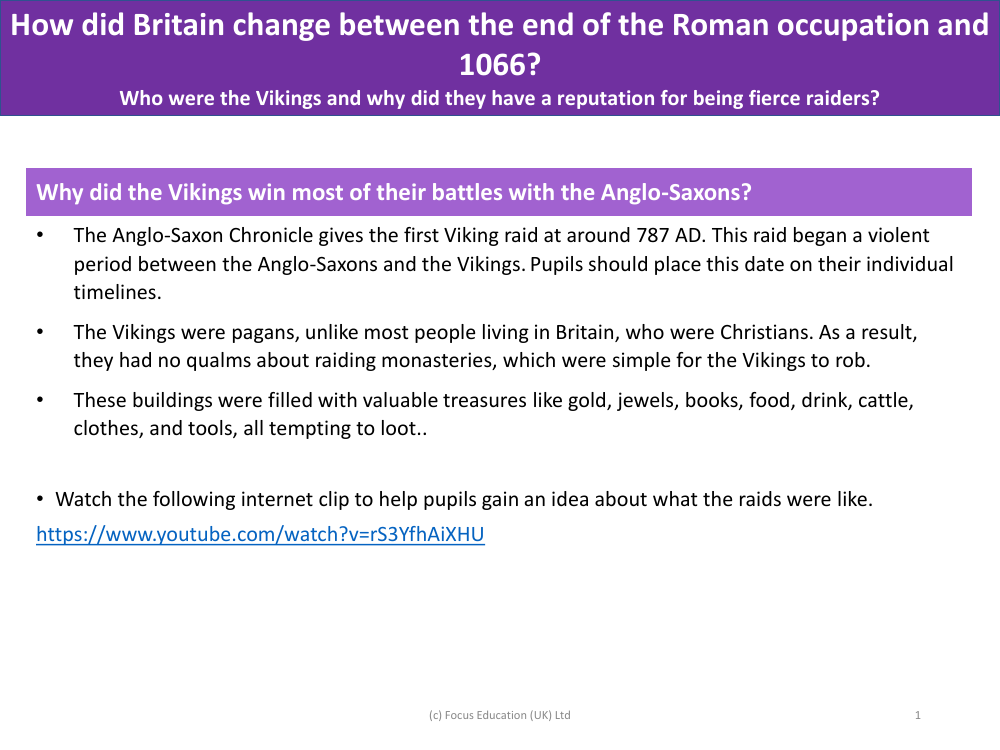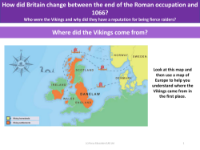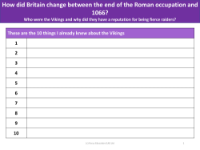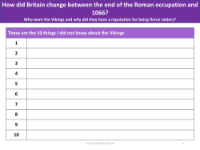Why did the Vikings win most of their battles with the Anglo-Saxons? - Info pack

History Resource Description
The Vikings' victories over the Anglo-Saxons were a result of several factors that contributed to their dominance in battle. The first recorded Viking raid, as noted by the Anglo-Saxon Chronicle, occurred around 787 AD, marking the start of a turbulent era between the two groups. The Vikings, being pagans, did not share the Christian beliefs of the British inhabitants and thus felt no remorse in attacking and looting monasteries. These religious sites were often rich in treasures, including gold, jewels, books, and other valuable goods, making them prime targets for the Vikings. The Viking warriors were also exceptional sailors, had superior weaponry, and all males were trained in combat from a young age. Additionally, the design of their longboats played a significant role in their success.
As the Viking presence in Britain grew, they established the Danelaw, a region in the east of England delineated by an imaginary line from London to Chester. This territory included significant areas such as Northumbria, East Anglia, and the Five Boroughs, which comprised towns like Leicester, Nottingham, Derby, Stamford, and Lincoln. Viking families settled in these lands, attracted by the promise of fertile farmland. York, or 'Jorvik' as it was known to the Vikings, became a central hub for trade and was home to over 10,000 people. Many British towns and cities with names ending in -by, -thorpe, or -toft can trace their origins back to Viking settlers. Despite their early successes, the Anglo-Saxons, under the leadership of Alfred the Great and his successors, gradually reclaimed territories from the Vikings, culminating in the Vikings' acceptance of English rule following the death of Eric Bloodaxe, the last Viking king of Jorvik.














